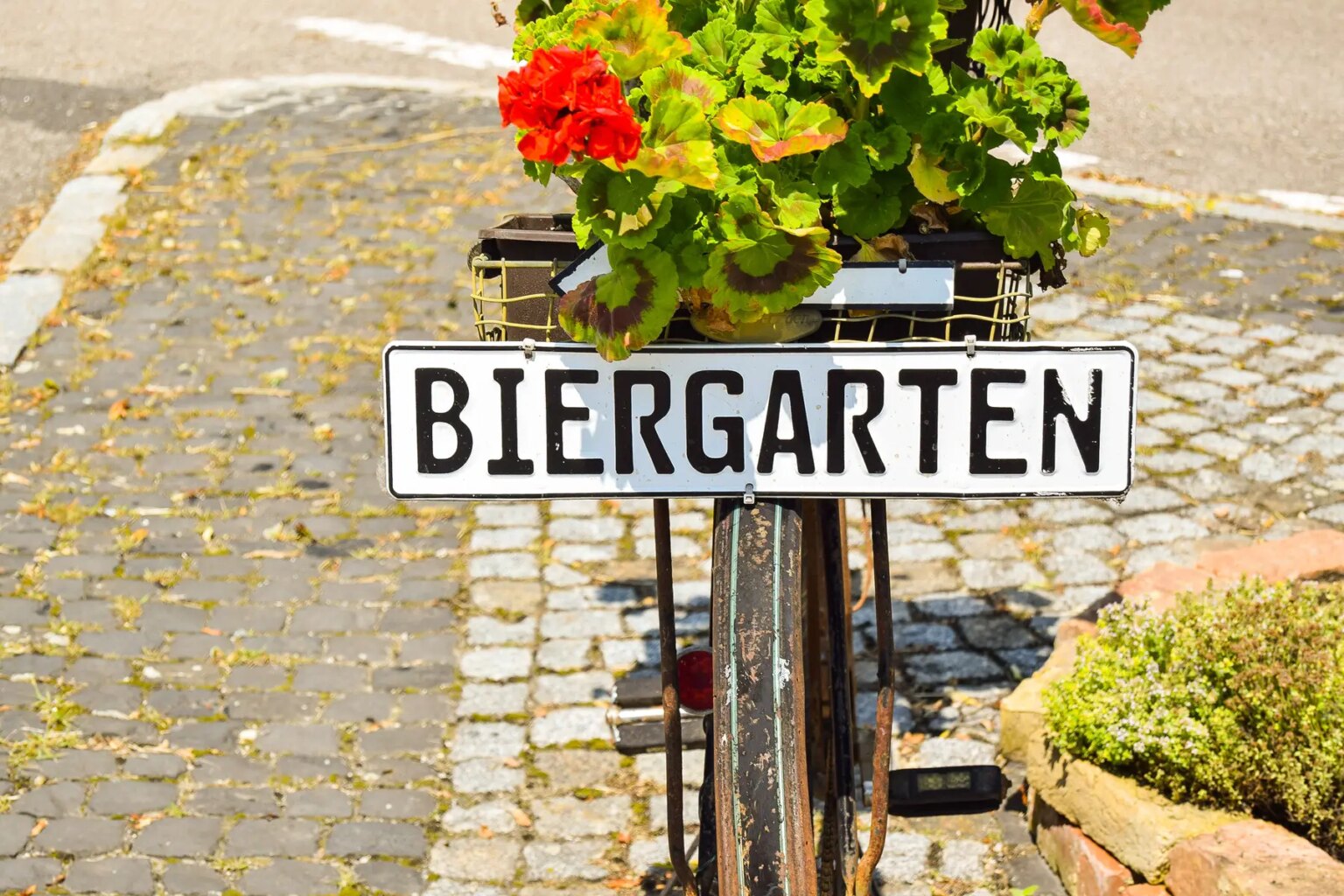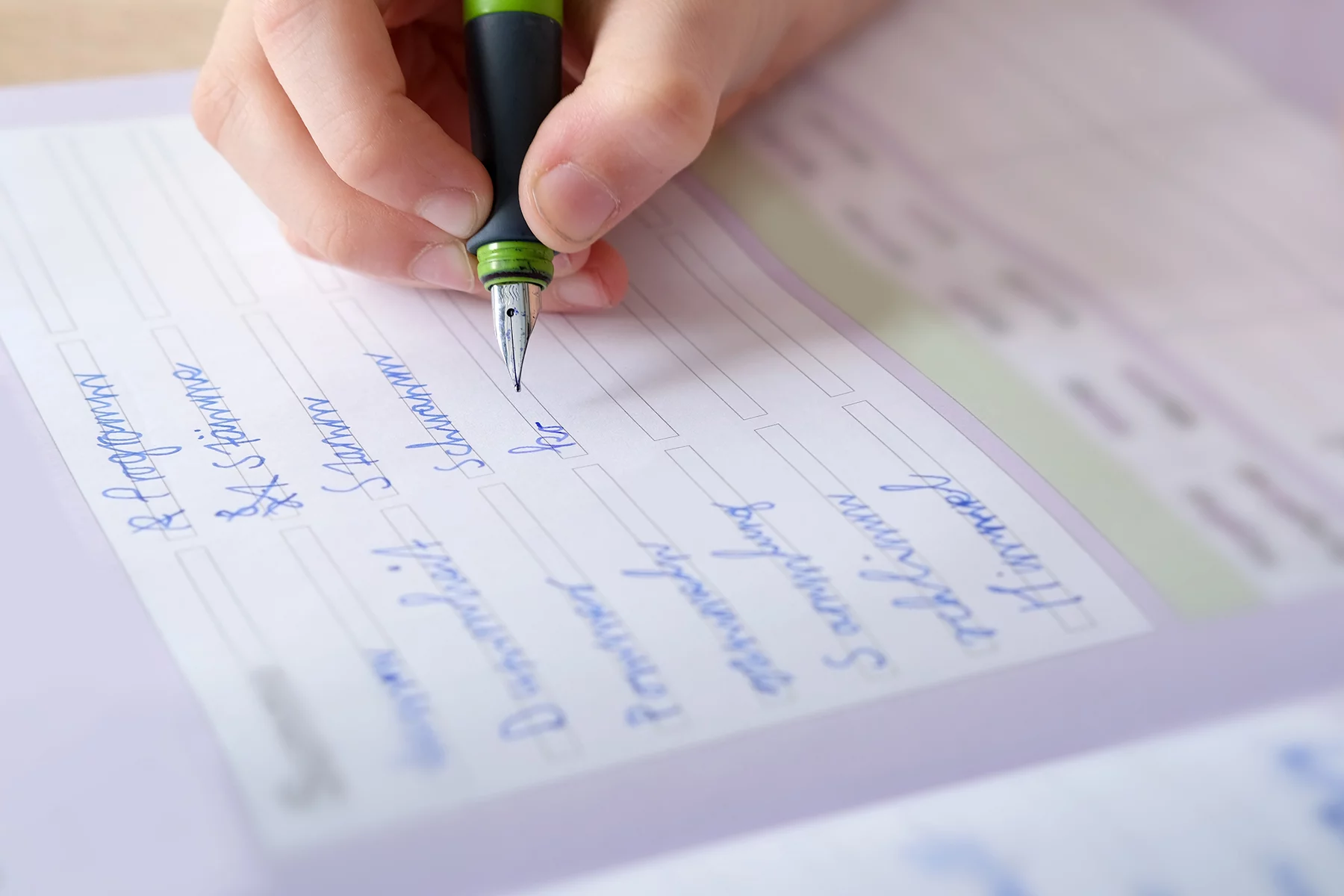German is the second most widely spoken language in the European Union (after English) and an official language in six countries in Europe. Despite having a reputation as being one of the most difficult languages to learn, German is actually not as difficult to grasp as it may first appear. Indeed, a 2021 report showed that some 15.4 million people worldwide are currently learning German as a foreign language, and numbers are increasing, proving that it isn’t impossible to master.
To help you get to grips with the German language, this guide includes the following information:
Babbel
Do you know your umlauts from your U-bahn? Take your German further with the language-learning app Babbel. Its range of professionally-made language courses will get you reading, writing, speaking, and listening to German from the comfort of your own phone. Download Babbel today and get started.
What languages do people speak in Germany?
German is the official language of Germany and 95% of the population speak it as their first language. North Frisian, which is another German language, is a minority language that is spoken by around only 10,000 people who live along the Frisian coast.
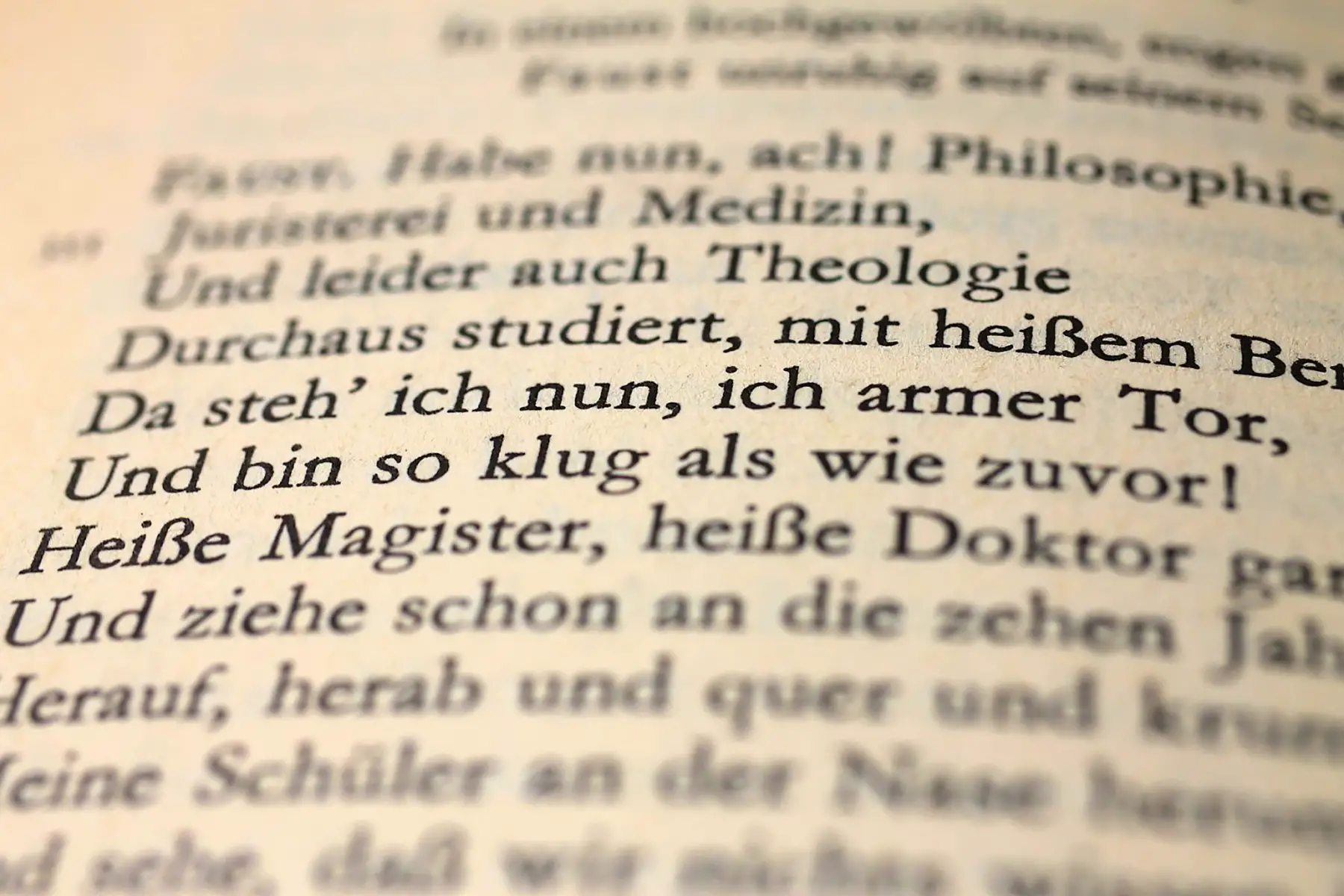
Germany shares its borders with nine other European countries, and more often than not, those living near the borders tend to speak the language of their neighbors as well as German. For instance, you will find plenty of Danish speakers in the northernmost part of Germany, French speakers along the Alsatian border, and Polish speakers in the east.
According to data from Eurostat, 21.3% of the population in Germany speak only German, while 41.7 % speak one additional language, 26.6% speak two extra languages, and 10.4% speak three languages. Fortunately for expats living in Germany, 56% of Germans speak English and this is taught at most German schools. However, in reality, this percentage is severely skewed by age, as most of the younger generations speak very good English. As a result, expats generally get along fine without having to learn German, although it always helps to learn the local lingo.
Where is German spoken worldwide?
German is one of the official languages of Germany, Austria, Belgium, Luxembourg, Switzerland, Liechtenstein, and Namibia, as well as various regions in other countries around the world. It is the mother tongue of some 100 million people worldwide, and around 130 million people speak it as a first or second language. German is also the 10th most widely spoken language in the world.

Around 9.3 million people are learning German as a second language in Europe. It is also a popular subject at secondary schools across the continent. A 2020 survey by the Goethe-Institut, DAAD (German Academic Exchange Service), and Deutsche Welle also reveals that, in some countries, the number of German learners is on the rise. For instance, Denmark, the Netherlands, and France saw an increase of up to 62% since 2015.
The origins and history of the German language
As a spoken language, German is known to date back to Roman times in the first century BCE. Back then, it took the form of a single Germanic language with only minor dialect differences. It wasn’t until later on, in the 8th century, that the first written German texts, such as the heroic poem Hildebrandslied, first appeared. This is known as Old High German.
Then over the centuries, the German language evolved in three stages:
- Old German: circa 750 to 1050, this was reportedly quite similar to Old English
- Middle High German: circa 1050 to 1500
- Modern High German: circa 1500 to the present
The evolution of Modern High German
The period of Modern High German started with Martin Luther’s translation of the Bible in the early 16th century. The celebrated writers of the 19th century, such as Goethe and Schiller, are generally credited with giving High German (or what is also known as Standard High German) its modern written form, creating a language for thinkers, writers, and scientists.

The formation of the language was influenced by the so-called High German consonant shift, a sound change that created a language that is distinctly different from other West Germanic languages. The Duden dictionary first brought together the grammatical and orthographic rules of this modern version of German in 1880.
Dialects of German
As a written language, German is fairly uniform. However, when spoken, it exists in many dialects, most of which belong to either the High German or Low German dialectal groups. The main difference between the two is the sound system, and in particular, the consonants. Interestingly, these two dialects are geographically linked to specific regions of Germany and other countries around the world.
High German
High German, for instance, is the language of the southern highlands of Germany. It is also the official written language of Germany. Otherwise known as Hochdeutsch, it belongs to the West Germanic group of the Indo-European language family, along with English, Frisian, and Dutch.
Low German
Low German – or Plattdütsch – however, is the spoken language of the lowlands of Northern Germany; as well as parts of other European countries and European immigrants who settled abroad. In fact, there are around 301,000 native Plattdütsch speakers in the world. The language is a combination of German and Frisian, with strong similarities to English. It also has several dialects and names, depending on where it is spoken.
Regional dialects of German
Similar to other European countries, different cities and regions of Germany tend to have different dialects and accents. In fact, some linguists claim there are as many as 250 dialects of German. These generally fall into the categories of Plattdeutsch (Low German) which is spoken in the north, Berlinerisch (Berliner German), Bayrisch (Bavarian), and Sächsisch (spoken in Saxony). There is also Kölsch, which is spoken in Cologne (Köln), and Düsseldorferisch, which people speak in and around Düsseldorf.

Some of these dialects are more extreme than others. For instance, in Hamburg, interviews with Bavarians on TV often come with subtitles to help locals understand the dialect. However, what brings the dialect-speaking population together is Hochdeutsch (High German), which, as previously mentioned, is the official written language of Germany. Therefore, everybody learns it at school and can speak and understand it.
In Germany, regional accents tend to invoke a sense of pride and belonging, and you shouldn’t make fun of them. And even if you don’t understand a word initially, you will adapt to the local lingo soon enough. However, if you are hiring a private German tutor, just remember to ask where they come from. Often, people believe they are speaking flawless High German, when in fact they have very strong regional accents. So make sure you learn High German – to begin with, at least.
German pronunciation and phonology
German is a very phonetic language and almost any given word is pronounced the way it is spelled. Therefore, if two letters look the same in different words, they tend to sound the same too. For example, in German, lernen (to learn) is pronounced the same way as die Lanternen (lanterns). This contrasts with phonetic inconsistencies in English such as ‘tough’ and ‘though’, which look the same but are pronounced differently.
The German alphabet
The modern German alphabet consists of the 26 letters of the Latin script alphabet, plus four special letters: ä, ö, ü, and ß. Many of the letters of the alphabet sound similar to their English equivalents when used in words. However, there are some exceptions, as follows:
- The letter ‘r’, when used at the start of a word, makes a rolling sound at the back of the throat
- The German ‘w’ sounds like the English ‘v’, while the German ‘v’ sounds like an English ‘f’
- The German ‘j’ is identical in pronunciation to the English ‘y’
- In German, ‘ch’ is pronounced as in the phrase ‘Loch Ness’
The umlaut
In German, there are three umlauts (vowels with two dots above them). These are ä, ö, and ü. Each of these umlauts also has two variations – ‘short’ umlauts and ‘long’ umlauts, which determine the pronunciation of a word.
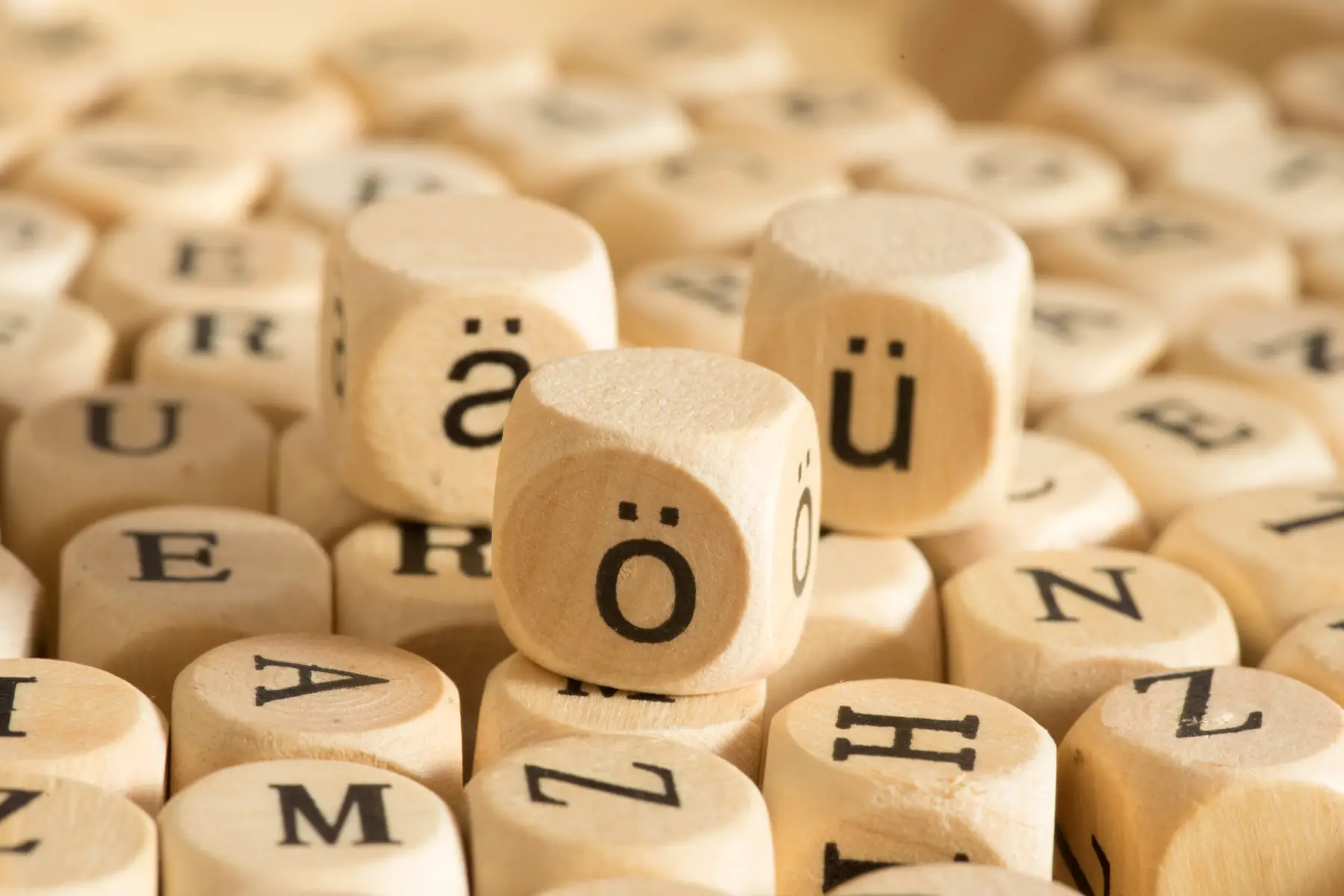
The short ä, for instance, is pronounced like the ‘e’ in the word ‘bet’ in English. When saying a word with a short umlaut, you also don’t hold the sound for too long and instead say it quicker. When saying a word with a long umlaut, however, you simply need to keep the original sound and hold it a bit longer. In English, this is like saying the ‘ay’ in ‘say’.
Here is an example:
- Short ä – Äpfel – Apple (the sound here is short and ê)
- Long ä – Mädchen – Girl (lengthen the short ä and add a silent H)
Learning how to pronounce long and short umlauts can be a little tricky to master as there are no equivalent sounds in English. However, you can find lots of excellent resources online to help you tackle them.
The ß or Eszett
Perhaps the most interesting character in the German alphabet is the Eszett, (or sharp s) which is shown as ß. This is used in written German to indicate that you should make an ‘ss’ sound, rather than a ‘z’, after a long vowel sound. Take, for example, the word ‘Straße‘. In this case, the ‘a’ is pronounced long, instead of short, and followed by a sharp s.
Interestingly, people sometimes write ‘Strasse‘ instead of ‘Straße‘ when they don’t have access to a German keyboard! However, while it is a valid substitute for the correct spelling, it is better to learn the proper version. You can find out how to write an Eszett on your computer here.
The Eszett can also help to differentiate between words that sound similar; for example, reisen (to travel) with a voiced s from reißen (to tear) with a voiceless s. Interestingly, the Eszett doesn’t exist everywhere where German is spoken. The Swiss, for instance, dropped it years ago. However, it is still useful in helping the reader figure out how a word should be pronounced.
German grammar
If you are planning on learning German, there are some basic grammar rules that you should be aware of. Below are some to start you off.
All German nouns have genders
In most Romance languages, nouns are either male or female. However, the German language also has a third – the neuter gender – resulting in three articles: der, die, and das.
- Der – is placed before all masculine nouns (e.g., der Hut: the hat)
- Die – is placed before all feminine nouns (e.g., die Klasse: the class)
- Das – is placed before all neuter nouns (e.g., das Kind: the child)

Notably, the gender of a word is determined purely by grammar and doesn’t always seem logical. For example, a tree and a dog are both male while a cat is female and a kitten is neuter. This is something you will simply have to learn by heart, rather than trying to understand an overarching rule.
All nouns are capitalized
In German, all nouns – not just proper nouns – are capitalized. Therefore, anything that has (or could have) a der, die, or das article in front of it needs to begin with a capital letter (for example, der Hut, die Klasse, das Kind).
Simple sentences follow a similar structure to English
Fortunately, simple sentences have the same basic structure in German as they do in English. The general word order is:
subject + verb + nouns
for example: “Ich spiele Golf” (I play golf).
The verb is always in the second position in a sentence. However, when you want to ask a question, you simply move the verb to the first position; for example, “Spielst du Golf?” (Do you play golf?)
It isn’t until you start talking in the past tense, however, that things get a little more complicated. In this instance, the past participle moves to the end of the sentence; for example, “Ich habe Golf gespielt” (I played golf).
You can delve further into the world of German grammar rules with FluentU or StoryLearning.
Interesting facts about German
Need a well-deserved break from all that learning? Then check out these fun facts about the German language that may just surprise you.
German has some of the longest words in the world
This can present a challenge for Scrabble lovers who are trying to spell a German word with just seven tiles! However, in German, the long words, also known as compound nouns, are basically made up of smaller words that are joined together. So, when faced with a word like Rechtsschutzversicherungsgesellschaft, don’t give up. Just break it up into its constituent parts: Recht (law), Schutz (protection), Versicherung (insurance), and Gesellschaft (company). Ultimately, you end up with the translation: an insurance company that provides legal protection. See? Simple.
German features untranslatable words
Besides being famous for having some incredibly long words, German also has some unique ones which the rest of the world struggles to translate. For example, there is the famous Heimat, which not only means ‘home’ and ‘homeland’, but so much more. This word has connotations that are specific to German culture, society, and nationalism.
Schadenfreude, meanwhile, is the happiness a German gets from seeing someone else’s misfortune, and Torschlusspanik refers to the panic feeling you get when you suddenly realize that time is running out. And finally, Fernweh refers to the longing for faraway places which probably brought most expats to Germany in the first place!
You always say what you see
In German, you pronounce every letter, regardless of how long the word might be. This is in stark contrast to French, where chances are, you only pronounce half the letters in any given word. This feeds into the phonetic consistency and is a huge bonus when it comes to learning German.
Learning German in Germany
There is always a huge advantage in learning the language of the country you live in, or at least, tackling the very basics. For starters, it is polite to speak to locals in their own language, rather than assuming that they are willing and able to use English. It will also help you meet new people and integrate better into the local culture.
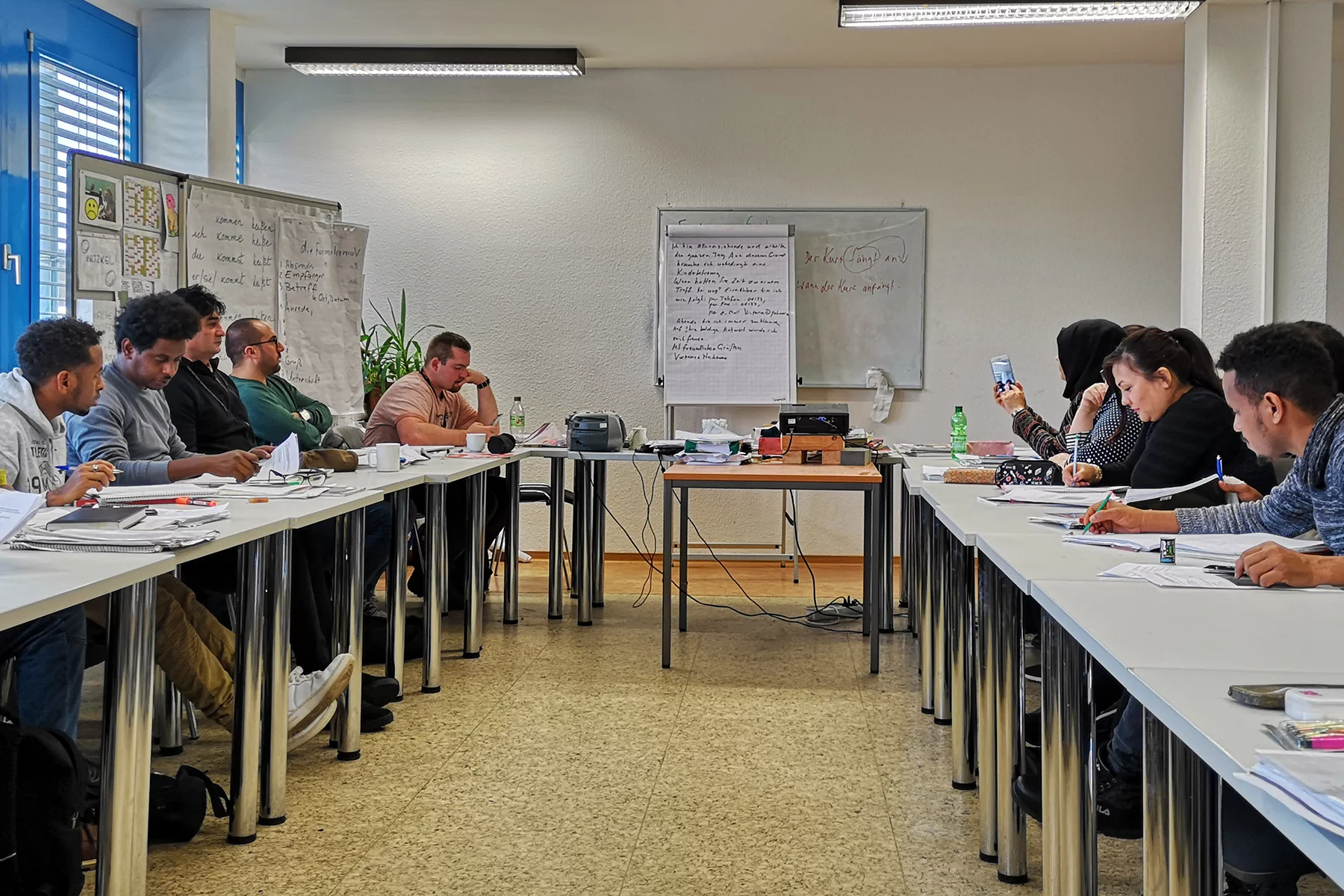
Yes, it can feel scary, but as Yale law professor Amy Chua once said, “a foreign accent is a sign of bravery”. And while 90% of the 15.4 million people learning German across the world are children, 10% are brave adults. And fortunately, there are several ways to learn German, depending on your preference and learning style. Below are a few suggestions.
Expose yourself to the German language
When you first set out to learn German, you can follow the same approach as you would for your children. It is all a question of exposure, so get out there and try to speak the lingo as much as you can. You might try reading simple magazines or, yes, children’s books. Watching German TV also helps, or you could start by putting German subtitles on when watching Netflix.
Enroll in a language school in Germany
If you prefer a classroom environment, then you might want to consider enrolling at a language school in Germany where you will also get to know other expats in the same boat as yourself. Fortunately, can find international German-language schools such as the Goethe Institute and Berlitz in most cities in Germany.
These schools might also have locations in your home country, which means that you can get a headstart on your learning before you move to Germany. Therefore, it’s worth checking their websites to find out.
Learn German online
Nowadays, there are plenty of online courses that can help you to learn German. These are useful because you can complete them at your pace and convenience. Some of the most popular companies that offer online German courses are Babbel, smarterGerman, Lingoda, and LanguaTalk. You can also find more options in our guide to learning German.
Download a language-learning app
Of course, in today’s tech-savvy modern world, apps play a big role in making our everyday lives easier. And busy expats on the move might be tempted to download a language-learning app to help them master German while living in the country. Some of the more popular apps that cover German include Babbel, Duolingo, Rosetta Stone, and DeutschAkademie.
Useful resources
- University of Michigan German Department – offers free German vocabulary and grammar sheets, as well as resources for reading, writing, speaking, and listening practice
- Free Language – a collection of links to online German learning resources, including podcasts, lessons, and smartphone apps
- BBC Bitesize – provides free classroom videos and audio clips to help you learn the basics of German
